 Petzlover
Petzlover Both Maine Coon and Munchkin are originated from United States. Both Maine Coon and Munchkin are having almost same weight. Both Maine Coon and Munchkin has same life span. Both Maine Coon and Munchkin has same litter size. Maine Coon requires Moderate Maintenance. But Munchkin requires Low Maintenance
Both Maine Coon and Munchkin are originated from United States. Both Maine Coon and Munchkin are having almost same weight. Both Maine Coon and Munchkin has same life span. Both Maine Coon and Munchkin has same litter size. Maine Coon requires Moderate Maintenance. But Munchkin requires Low Maintenance
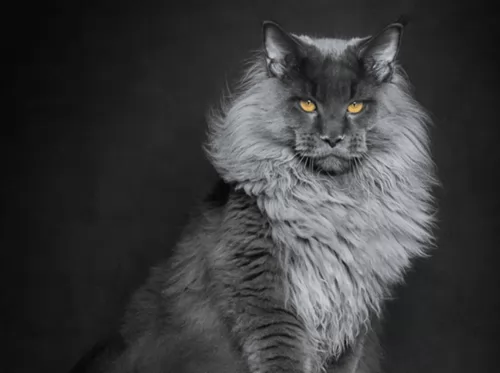 The Maine Coon cat hails from Maine, USA. It’s a natural cat breed with actually little being known of its exact origins.
The Maine Coon cat hails from Maine, USA. It’s a natural cat breed with actually little being known of its exact origins.
In fact, the first reference to the cat seems to have been in about 1861. It was in 1895 that a female Maine Coon was named Best Cat at a cat show held in Madison Square Gardens.
The Cat Fanciers Association was formed in 1908, and the 5th cat registered as a Maine Coon named Molly Bond.
The Maine Coon Breeders and Fanciers Association was formed in 1968. The cat is also the official state cat of Maine.
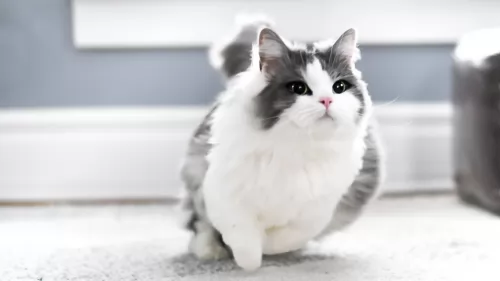 Information about the short-legged Munchkin cat has been around since the 1940s. A British veterinary report in 1944 noted these short-legged cats.
Information about the short-legged Munchkin cat has been around since the 1940s. A British veterinary report in 1944 noted these short-legged cats.
During the 2nd World War, the cats disappeared but other short-legged cats were seen in Russia during 1956 and then the United States in the 1970s.
The cat was introduced to the general public in 1991 but for many years it wasn't accepted in cat competitions. Eventually, the Munchkin was proposed as a new breed by foundation breeders and accepted by TICA into its New Breed development program in 1994. The Munchkin breed achieved TICA Championship status in May 2003. The Cat Fanciers Association doesn’t recognize the Munchkin.
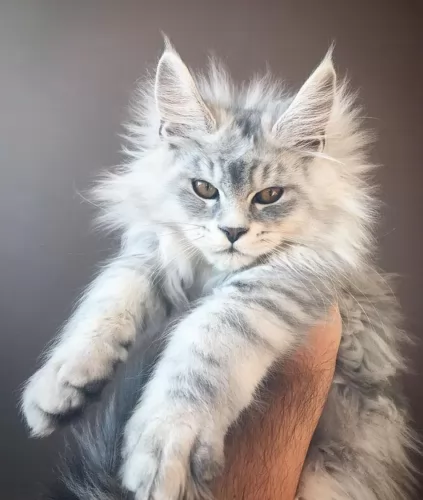 This is a large cat breed with strong bone structure. They can weigh between 5 and 9kg.
This is a large cat breed with strong bone structure. They can weigh between 5 and 9kg.
The height of these cats can be in the region of 25 and 41cm and they can reach a length of 97cm, including the tail. The body is muscular and robust with the chest being broad.
When it comes to the cat’s coat, the Maine Coon is characterized by the ruff along its chest. It has a 3-layered, water-resistant coat with longer hairs over a silky undercoat, and a long, bushy tail. The color of the coat can vary but the most common color is brown tabby. . It is medium- to long-haired. It’s a seasonal shedder with the fur being considerably thicker in the winter. All colors are available in this cat except blue.
The Maine Coon is a sociable cat and known for it playfulness as well as it being an intelligent cat and easy to train.
You’ll certainly need to supply the cat with some puzzle toys so as to stimulate his brain. It is also one of these cats known to have dog-like characteristics, becoming attached to its human owners, and being good-natured.
It is a loving cat and is also fairly vocal, wanting to tell its human owners what it wants. It’s not a lap cat. It is a gentle cat and gets on well with children and dogs as well as other cats.
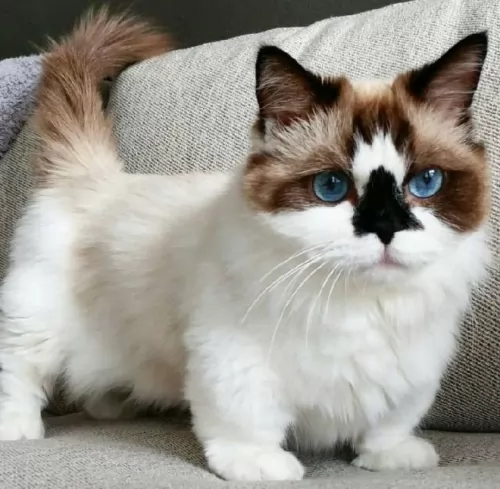 The Munchkin is a small to medium-sized, muscular cat with a thick coat that comes in all colors and patterns. In fact, color, pattern, and coat length will vary.
The Munchkin is a small to medium-sized, muscular cat with a thick coat that comes in all colors and patterns. In fact, color, pattern, and coat length will vary.
There is also a long-haired variety. It usually weighs between 3 and 4kg. It has short, stubby little legs and a torso that hangs fairly low to the ground. The cat’s back legs are somewhat longer than the front legs. The legs of these cats can be slightly bowed. The eyes can be any color.
The Munchkin is such a social, outgoing cat that just loves being petted and pampered by his human family. He is sociable and friendly as well as intelligent and is easy to train. While he is an amicable cat and can get on well with everyone in the family, it isn’t a good idea to have such a cat as a playmate for children as they can become injured.
An interesting feature with this cat is the way he doesn’t really sit like other cats but has a way of sitting up on his legs, much like a rabbit.
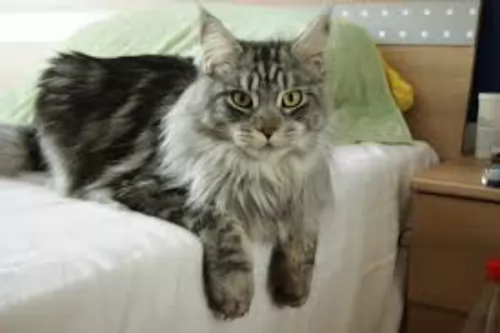 Maine Coon cats are such awesome pets and highly entertaining. They're excellent climbers too and to add to their many amazing characteristics, they love playing in water too.
Maine Coon cats are such awesome pets and highly entertaining. They're excellent climbers too and to add to their many amazing characteristics, they love playing in water too.
You’ll be doing him a favor by providing him with a paddling pool. They’re so clever, they may even learn to turn a tap on.
He is such a social, friendly, family-loving cat and it's not surprising that he’s a firm favorite with most cat lovers.
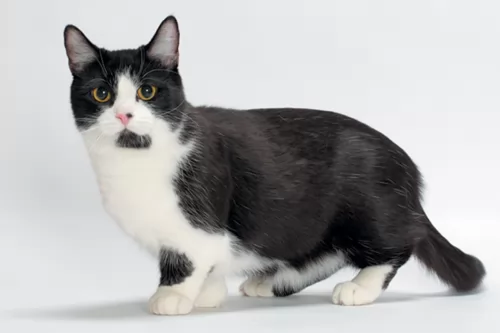 The Munchkin may be short and stock but he is just as active and playful as any other cat. When you have him in your home, you'll discover that his short little legs don't stop him from trying out everything other cats do.
The Munchkin may be short and stock but he is just as active and playful as any other cat. When you have him in your home, you'll discover that his short little legs don't stop him from trying out everything other cats do.
He is ready to show you what he's made of. He is a confident, social cat and is friendly, intelligent, and loving towards his human family. He makes a devoted companion and he will get along with other cats in the family as well as dogs.
He may be a bit odd to look at but if you want an excellent companion, the Munchkin is well worth your consideration.
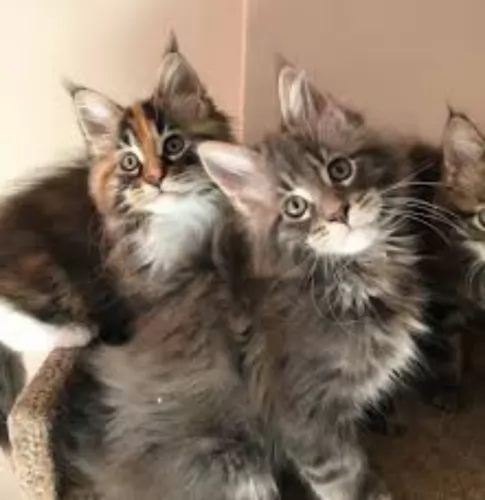 There are certain health problems that seem to occur in this particular cat breed, including hip dysplasia and feline hypertrophic cardiomyopathy.
There are certain health problems that seem to occur in this particular cat breed, including hip dysplasia and feline hypertrophic cardiomyopathy.
Hip dysplasia is a condition of the hip joint that can cause degeneration of the joints. It can lead to stiffness and pain for your cat and it can be that your cat develops osteoarthritis.
If your cat develops hip dysplasia it won’t want to jump, it becomes lethargic and there may even be muscle loss in the rear legs.
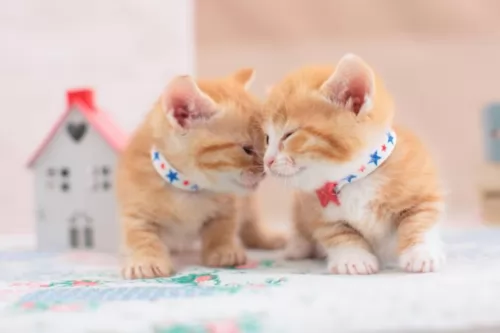 Because this is a fairly new breed, it's still not too clear about its health. It was once thought that the Munchkin cat could develop spinal problems because of its short legs.
Because this is a fairly new breed, it's still not too clear about its health. It was once thought that the Munchkin cat could develop spinal problems because of its short legs.
It was in 1995 that some breeders had some of their older Munchkins x-rayed to see if there were any signs of joint or bone problems, but none were found.
The Munchkin cat should also be vaccinated as a kitten and be treated for parasites. To ensure the good health of your sweet little Munchkin cat, give him the best diet possible.
In fact, if you take good care of your Munchkin and you make sure to get all the necessary vaccines for him and get him to the vet when he shows signs of illness, your munchkin can reach 12 to 15 years of age.
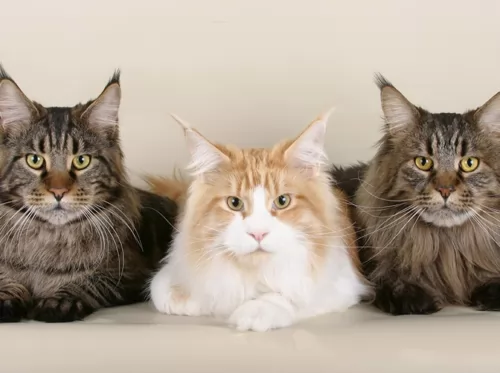 Cat owners need to realize that diet is one of the most important factors of keeping a cat healthy. The Maine Coon needs nutritious food.
Cat owners need to realize that diet is one of the most important factors of keeping a cat healthy. The Maine Coon needs nutritious food.
Some people give their cat a mix of dry kibble as well as wet food. It is better to feed your pet smaller meals as opposed to large meals. What is very important is that the cat food is of a high-quality and that it be made up of meaty protein as every cat is a carnivore.
Provide your Maine Coon with a litter box and put it in a quiet, private area. It’s a large cat so make sure the litter box is large as well. With a cat you may need to experiment with him to figure out where he prefers his litter box to be.
This is an active cat so ensure that he gets plenty of exercise. Provide him with climbing equipment and stimulating toys. Your Maine Coon might even enjoy going for a walk and for this, you’ll need to get a cat harness.
Every cat likes to scratch – it’s normal behavior. Make sure you have one or two scratching posts with heavy bases set up for your cat otherwise he may direct his scratching on your furniture.
Every cat owner needs to know a good vet in their area so that their pet can get immediate veterinary help when he becomes sick.
Your Maine Coon’s coat is thick – made up of 3 layers. To maintain its silky feel, and to prevent matting, make sure to brush it once or twice a week. Make it an enjoyable, gentle grooming session for your furry pet. Speak to your vet about the right kind of brushes.
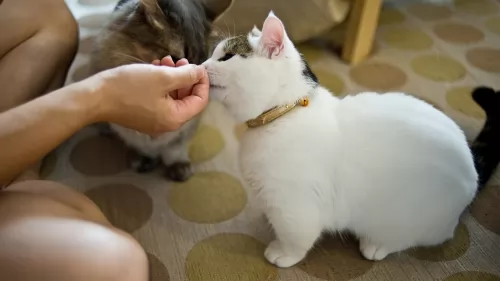 Every cat is unique and the Munchkin is a unique cat, This little cat is a carnivore just like any other cat and his diet must be made up mostly of protein.
Every cat is unique and the Munchkin is a unique cat, This little cat is a carnivore just like any other cat and his diet must be made up mostly of protein.
Speak to your vet about the best food for your Munchkin because a kitten will require a different diet to a senior Munchkin. Also, you don’t want your Munchkin to put on too much weight as this can be detrimental to his joints.
Not only that, being overweight comes with all kinds of health issues. The manufacturers of commercially manufactured cat foods have made sure that they have brought out foods for every stage of a cat's life and age.
Munchkin cats will need to have their fur brushed at least once a week. Trim the claws at the same time.
Provide your sweet little Munchkin with a litter box and keep the litter box immaculately clean, removing the feces every single day.